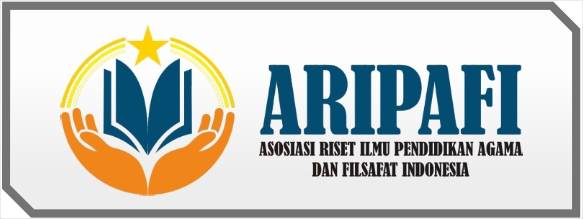PERAN KOPERASI PONDOK PESANTREN DALAM MEMBANGUN MENTAL WIRAUSAHA SANTRI (Studi pada Koperasi Pondok Pesantren Darul Qur’an, Desa Braja Harjosari, Kecamatan Braja Selebah, Kabupaten Lampung Timur)
Keywords:
The Role of Cooperatives, Business MentalityAbstract
The development of the business world in pesantren huts can be seen with the development of business or business, both on a small and large scale. Pondok Pesantren Darul Qur'an can only develop pesantren cooperative business on a small scale. Cooperative business is aimed at meeting the daily needs of santri. In addition to insights and doctrines of entrepreneurship that can affect the entrepreneurship interests of the santri, independent santri life can also be a determining factor to become an entrepreneur, where he must have a strong determination and determination to be independent, even though people are determined to hinder, worry, or underestimate it. This research aims to find out the role of boarding school cooperatives in building a santri entrepreneurial mentality. This study is a quantitative descriptive study, in which respondents as much as ten coefficients of determination R2. In this study, the free variable is the role of cooperatives and the bound variable is the mental self-employment. The results of the analysis of independent variables (cooperative roles) were obtained thitung (5,337) > tcount (2,306). Thus, variable X has a partial effect on variable Y. The results of the F test show that Fcount (28,482) > Ftable (4.46), while signification is 0.000 < alpha at the signification level of 0.05, then Ho is rejected and Ha is accepted, which means independent variables (cooperative roles) together or simultaneously affect dependent variables (entrepreneurial mentality) positively and significantly. The results of the determination coefficient (R2) test showed the Rsquare number of 0.781 or 78.1%, i.e. the entrepreneurial mental variable can be explained by the cooperative role variable and the remaining 21.9% can be explained by other variables.
References
Alma, Buchari. 2004. Kewirausahaan untuk Mahasiswa dan Umum. Bandung: Alfabeta.
Al-Qur’anul Karim. 2014. Al-Qur’an dan Terjemah. Jakarta: Pantja Cemerlang.
Amrulloh. 2019. Taddabur. Jurnal Peradaban Islam. Vol. 1, No. 2.
Arikunso, Suharsimi. 2010. Prosedur Penelitian. Jakarta: Rineka Cipta.
Barnawi dan Arifin, Mohamad. 2010. School Preneurship. Yogyakarta: Ar-Ruzz Media.
Hendrojogi. 2000. Koperasi, Azas-Azas, Teori, dan Praktik. Jakart: Raja Grafindo Persada.
Khrisna, Adityangga. 2010. Membangun Perusahaan Islam dengan Manajemen Budaya Perusahaan Islami. Jakart: Raja Grafindo Persada.
Pandji, Anoraga. 2009. Manajemen Bisnis. Jakarta: Rineka Cipta.
Partomo, Titik Sartika. 2004. Ekonomi dan Koperasi. Bogor: Ghalia Indonesia.
Prasetyo, Bambang. dan Jannah, Lina Miftahul. Metode Penelitian Kuantitatif. Jakarta: Raja Grafindo Persada.
Sholeh, Abd Rosyid. 1997. Manajemen Dakwah Islam. Jakarta: Bulan Bintang.
Subagyo, Joko. 2011. Metode Penelitian dalam Teori dan Praktik. Jakarta: Rineka CIpta.
Subiyanto, Ibnu. 2000. Metodologi Penelitian Manajemen dan Akuntansi. Yogyakarta: UPP-AMP-YKPN.
Sugiyono. 2015. Metode Penelitian Kuantitatif, Kualitatif, dan R&D. Bandung: Alfabeta.
Sukamdiyo. 1996. Manajemen Koperasi. Jakarta: Erlangga.
Sukarna. 1992. Dasar-Dasar Manajemen. Bandung: Bumi Aksara.
Suryabrata, Sumardi. 1998. Metodologi Penelitian. Jakarta: Raja Grafindo Persada.
Ulfa, Maria. 2015. Minat Wirausaha Kaum Santri. Jurnal Ekonomi Islam. Vol. 1, No. 1.
Downloads
Published
Issue
Section
License
Copyright (c) 2022 Vista Firda Sari , Awwalia Ni’matul Fadilah

This work is licensed under a Creative Commons Attribution 4.0 International License.













